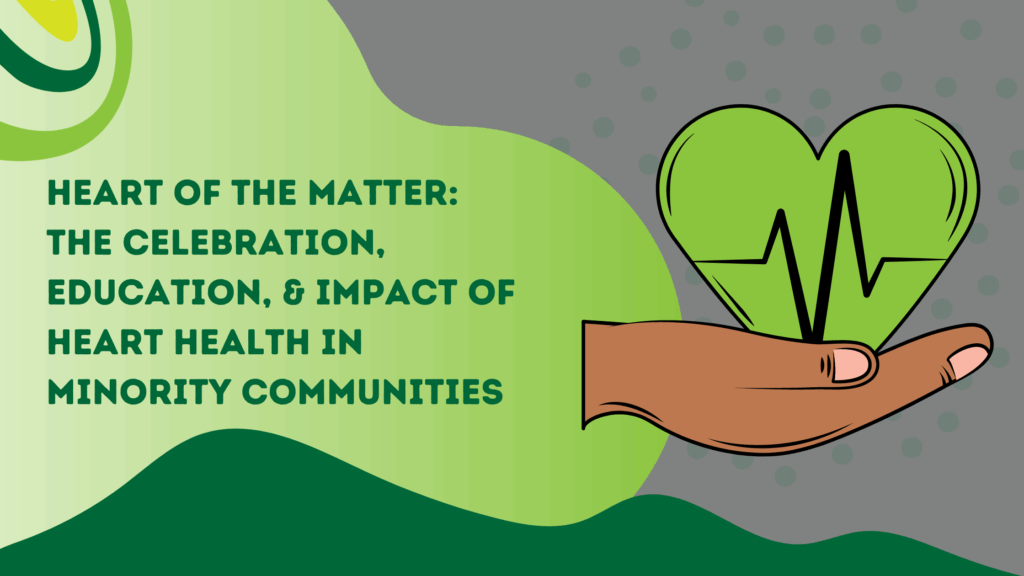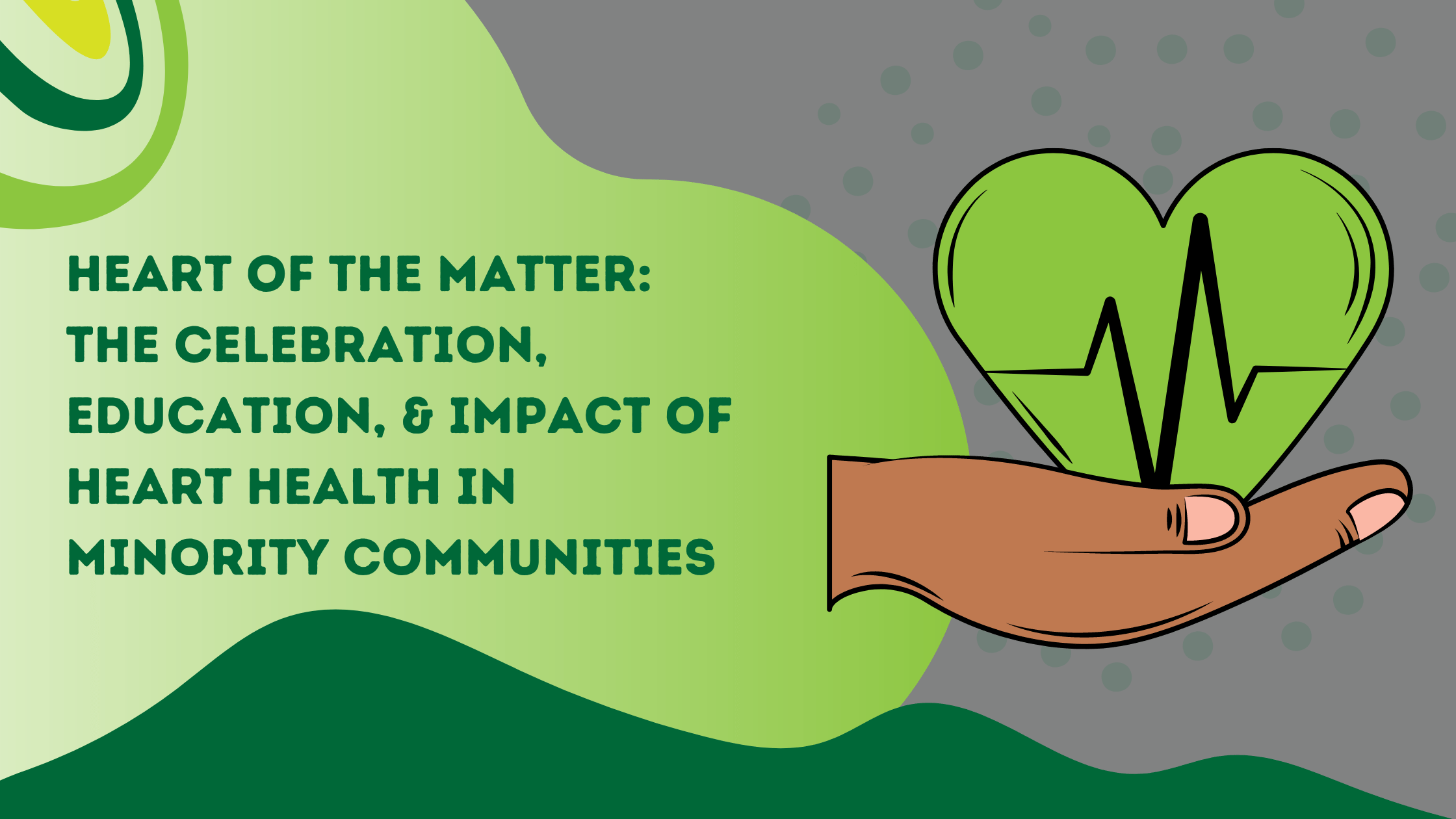
As this month comes to a close, let’s reflect on how the second month of the year plays a significant role in our everyday lives. February is known as a month of celebrations of love, and hearts will be decorating offices and schools across the country. Love for your neighbors, family, and friends abound in honor of Valentine’s Day and the celebration of Black History Month, but did you also know that February is Heart Health Awareness Month.
Yes, many people will think of loving gestures and candy for Valentine’s Day as they see the symbols of the heart in their surroundings, but are we being mindful of our hearts and ensuring we care for them and make healthy choices? Yes, sweets and delicious meals are lovely to share with that special someone; however, too much of indulgence can lead to several risk factors dealing with cardiovascular health.
During Black History Month, we honor our historical figures who have made strides worldwide in many occupations, especially in the medical field. One such person is Richard Allen Williams, who founded the Association of Black Cardiologists in 1974. This organization promotes the prevention and treatment of cardiovascular disease in minorities. Heart disease is the leading cause of death in the United States and particularly affects African American populations. The conversation surrounding cardiovascular health is also essential among minorities. While there is room to improve everyone’s health overall, studies have shown that African Americans are 24 percent less likely to die from heart disease and 20 percent more likely to have a high blood pressure than non-Hispanic whites to have their blood pressure under control. African American women are 60 percent more likely to have a high blood pressure than non-Hispanic white women.
According to the CDC, several risk factors are related to heart disease. These risk factors include diabetes, obesity, hypertension, high cholesterol, and cigarette smoking. While these issues cannot be eradicated in a day, taking small steps each day to ensure good heart health can lead to a more stable and sustainable quality of life:
- Always consult your doctor and or health specialist about these lifestyle changes.
- Think of a nutritious, easy-to-follow, cost-effective diet. Eating a healthy diet of fresh fruits and vegetables, lean meats, and a low sodium intake can also help with maintaining a healthy weight also with exercise. Limiting alcohol consumption and quitting smoking can also help.
- Take your prescriptions and take 30 mins of self-care daily to improve overall mental health.
- Look into local resources and benefits in your area you are likely eligible for by calling SC Thrive Monday through Friday, 8:30 am to 5 pm at 800.726.8774.
During this time of love and celebration, let’s ensure that the heart is receiving all of the love that it deserves so that we can continue to care for and celebrate those who mean the most to us all.
